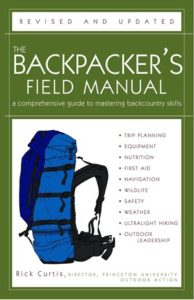Appeal (Appellate Court)
An action taken by a party disappointed with a lower court’s ruling, seeking a higher court’s review of that ruling. The Appellate Court (Appeals Court) may overturn, approve, or, in some cases, modify the lower court ruling. The Appellate Court may send the case back to the trial court for further action consistent with its ruling.
Affirmative defense
A defendant’s defense to a claim or claims made in a plaintiff’s Complaint (asserted in a defendant’s “Answer” to the Complaint). Such defenses may include, for example, assumption of risk, duress, statute of limitations, failure of consideration for a contract.
Affirm or Approve
To allow a lower court ruling to stand (in the context of an upper court’s treatment of a lower court ruling).
Civil Law
The body of law that applies to private wrongs (generally “torts” or contracts). Proven violations under civil law can result in, among other things, an award of money “damages” to the plaintiff (vs. incarceration or other punishment).
Comparative Fault
Most states have enacted varying types of comparative fault (or comparative negligence) laws allowing a court or jury to apportion the defendant’s fault/negligence and the plaintiff’s contributory fault/negligence when deciding the case. Depending upon the wording of the statute, the plaintiff’s contributory fault can have the effect of either barring plaintiff’s claim, or reducing the amount of the award.
Criminal Law
The body of law that applies to “public” wrongs – or actions against the community at large. This law is generally defined by Federal or State statutes. Proven violations under criminal law can result in the defendant’s incarceration or payment of a fine.
Declaratory Relief
Judicial relief sought by a party (plaintiff or defendant) asking the court to issue a ‘declaration’, formally ruling on a point of law.
Defendant
The party who is sued or charged with a crime.
Dismiss
To end the lawsuit, for a number of reasons, sometimes reserving the plaintiff’s right to bring it again, and sometimes not.
Doe
A fictitious name, sometimes appearing on the pleadings and used by the Court, to protect a person’s known identity, or to refer to a person whose identity is unknown.
Dissent
In the appeals process, a position taken by one or more judges who disagree with the decision reached by the majority of the judges on the panel considering the arguments of the parties. (Compare the “majority opinion”.)
Duty of Care
A legal duty to protect another from harm.
Exculpatory language
Any language included in an agreement that attempts to relieve a person or entity from legal liability (usually liability for ordinary negligence). The terms “waiver” and “release” are often used to describe exculpatory language or agreements.
Federal and State Courts
Different court systems, each having its lower, intermediate (usually), and highest appellate courts. (Cases appealed from a Federal District Court in Colorado, for example, go to the Tenth Circuit Court of Appeals, which collects cases from a number of states. Cases may go from there to the United States Supreme Court in limited circumstances.)
Gross Negligence
A considerably higher degree of negligence than “ordinary negligence” (failure to exercise reasonable care). It is considered great negligence—the doing of an act with the absence of even slight diligence. The term is used by some courts to describe extremely bad and careless conduct, but not that conduct rising to the level of “willful and wanton” misconduct. Other courts equate gross negligence with willful and wanton misconduct. Some courts define gross negligence as acting with an awareness that the risks and loss are both considerable. Definitions vary from jurisdiction to jurisdiction.
Indemnity Language
Any language included in an agreement attempting to require a party (the “indemnitor”) to protect another (the “indemnitee”) from a certain claim. An insurance contract is an agreement of indemnity. Indemnity language is oftentimes included in a participant agreement, and is considered exculpatory.
Inherent Risks
In the context of recreation and adventure activities, generally, those risks integral to a recreational activity that cannot be eliminated without destroying the unique character of the activity. Risks may be those that are desirable (e.g. moguls, whitewater); or, those that are undesirable (e.g. falling rock or sudden, severe weather changes).
Injunction
A court order preventing or commanding a certain action, see ‘injunctive relief’, above.
Injunctive Relief
Relief sought by a party (plaintiff or defendant) asking the court to issue an order usually prohibiting but sometimes requiring a certain action.
In loco parentis
Literally “in the place of a parent;” a doctrine that may impose heightened responsibilities and/or grant rights or protections to a person undertaking care and control of another in the absence of a parent.
Jurisdiction
May describe the limits of the power of a court to deal with a controversy (amount at issue or nature of a claim) or a person or entity within the geographic boundaries of a court.
Laws of Consortium
The benefits that one person is entitled to receive from another (particularly as between husband and wife, but also as between parent and child), including companionship, material services, etc. For example, damages for “loss of consortium” are commonly sought by a spouse whose husband or wife is seriously injured or killed by another.
Moot
Lacking any legal or practical significance.
Negligence
Negligence is the failure to exercise the care (in doing or NOT doing something) that a reasonable person would have exercised under the same or similar circumstances. To be negligent in the legal sense, one must owe a duty of care to the person affected by his or her act or omission. (To be distinguished from gross negligence).
Plaintiff
The party bringing the lawsuit.
Premises Liability
A special branch of the law of negligence dealing with the duty owed by persons who own or control “premises” (property) to persons who enter that property. The duty varies from jurisdiction to jurisdiction, sometimes based upon the status of the person entering the property; for example, those who are invited to the property versus those who are trespassers.
Punitive Damages
A form of “damages” (money) awarded to a plaintiff, based upon a determination (following a court or jury trial and resulting “judgment”) that a defendant committed conduct more egregious than ordinary negligence. Such damages are awarded in addition to compensatory or general damages. The basis for the award is not to compensate the plaintiff for actual loss (e.g. medical bills, loss of earnings), but to punish the defendant and/or deter defendant from engaging in future, similar conduct. A punitive damages award (depending, sometimes, on the jurisdiction), can be based upon a finding of e.g., gross negligence or willful, wanton or reckless misconduct.
Reckless Conduct
Sometimes used interchangeably with “gross negligence” or “wanton conduct” – an elevated degree of negligence which reflects a conscious indifference to the probability of significant harm resulting from an act or omission. Recklessness includes a state of mind, as opposed to negligence which may only be inadvertence. Definitions vary from jurisdiction to jurisdiction.
Release
(Sometimes called or used interchangeably with “Waiver”) – An agreement before or after an injury or loss whereby one party agrees to relieve another from liability for the injury or loss. Frequently, an organization will seek a release from a participant, including from claims of the organization’s negligence, in advance of an activity. A person who settles a dispute with another may ask for a release from that individual, to assure that the matter has been resolved. (See Exculpatory Language).
Respondeat Superior
Literally “let the master answer.” This doctrine holds that a “master” (employer) is liable for the acts of its “servant” (employee or agent), committed in the scope of the employment. This is a type of “vicarious” or indirect legal liability.
Settlement
A negotiated resolution of a lawsuit, usually before trial but sometimes after.
Statute
A written Federal, or State, Municipal or other law, passed by the appropriate law-making body (as opposed to “common law” which is law developed through court decisions.)
Summary Judgment
A ruling of a court disposing of a case, before trial, if the material facts are not disputed and the law clearly favors the party seeking summary judgment. A Motion for Summary Judgment is a request by either the Plaintiff or the Defendant for the court to rule on an issue without a trial.
Unclean Hands
The legal concept that a plaintiff or defendant cannot seek equitable relief from a court if that party has “unclean hands” – for example, if they have not acted in the matter in good faith. Referred to as the “clean-hands” doctrine. “Equitable” relief is relief sought by a party other than monetary relief – such as an injunction (defined above).
Willful and Wanton Misconduct
Conduct greater than ordinary negligence, and in some jurisdictions, greater than gross negligence. Conduct in which a defendant exhibits a “conscious disregard for the safety of others.” A defendant who has knowledge that his conduct holds a risk of serious risk to plaintiff, but proceeds forward anyway. In some jurisdictions, willful and wanton misconduct involves an element of intent (on defendant’s part) not required for a finding of gross negligence. Definitions vary from jurisdiction to jurisdiction.


